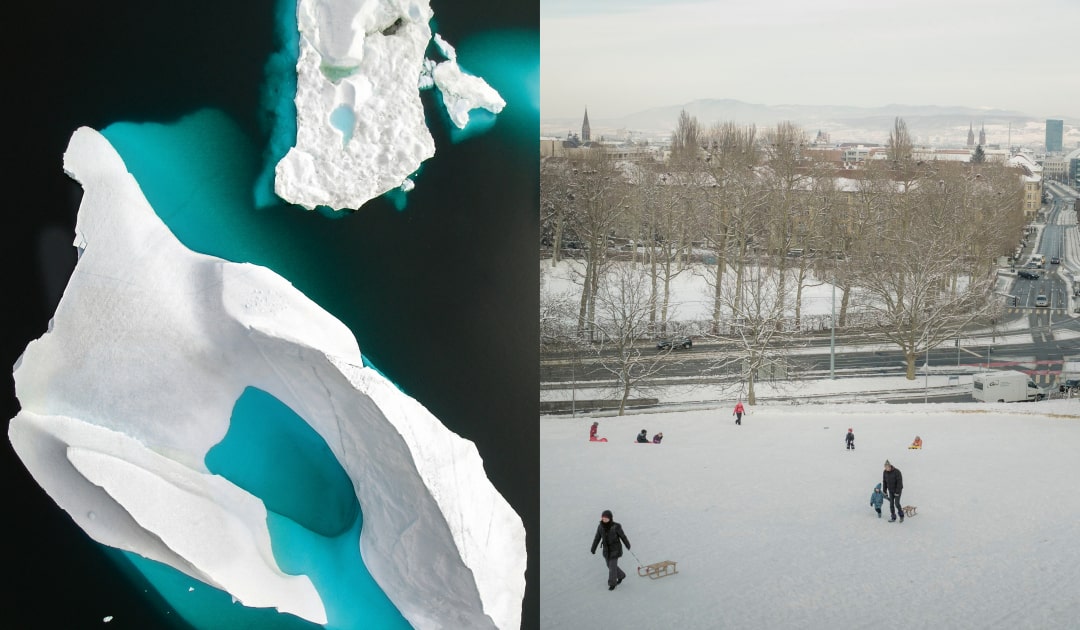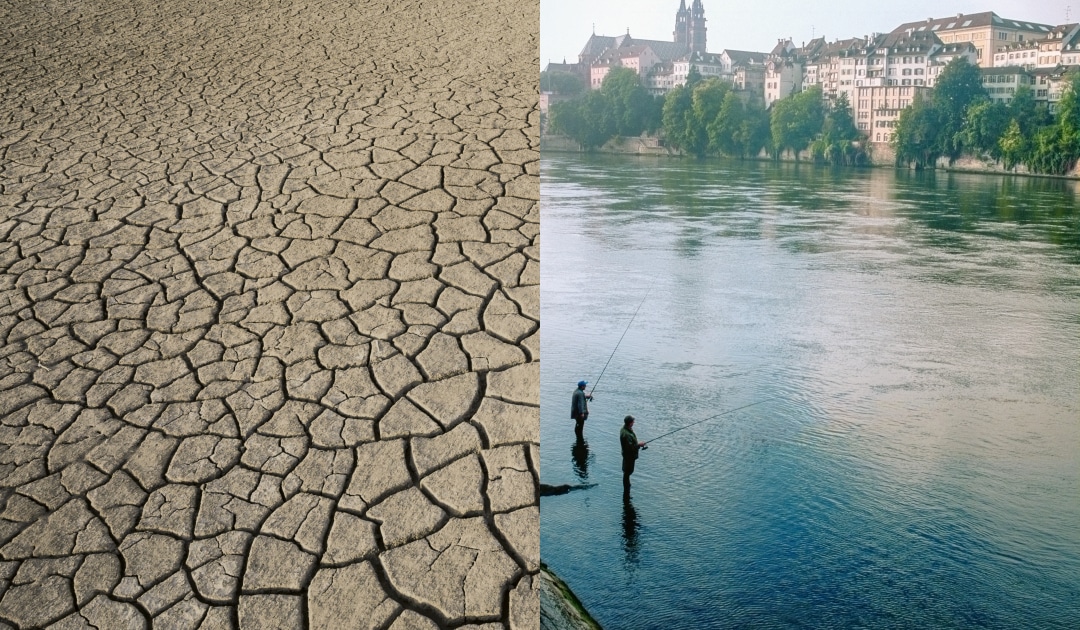
The polar regions do not only stand for wilderness, wildlife and nature for people. They are also seen as symbols of the effects of climate change. The importance that intact and functioning polar regions have on the rest of the world and its people is becoming increasingly apparent. That is why more and more governments and organizations are promoting a more sustainable approach to nature and the climate. Financial institutions are also joining the ranks and trying to use their possibilities to ensure greater sustainability. The Basler Kantonalbank advertises in Basel with pictures from the Antarctic and the Arctic right in the heart of the city.
On Basel’s Marktplatz, in the middle of the city centre, a huge poster with an Antarctic iceberg on one side and the frozen Tinguely Fountain on the other adorns the façade of a building. The Basler Kantonalbank points out that “What affects Antarctica, also affects Basel”. Underneath it says a little smaller: “We only have one climate”. This and other posters are part of an ongoing new campaign of the Basler Kantonalbank BKB. It wants to show that Basel and the polar regions are in the same boat and that the effects of climate change are not confined to these sensitive areas. Ennio Perna, head of BKB’s “Sustainability” department, tells PolarJournal: “We want to use the posters to show that Antarctica and our Basel are connected. In doing so, we use the frozen Tinguely Fountain as an emotional subject.” After all, when the fountain freezes in winter, this attracts numerous visitors who enjoy the ice sculptures, just like the large icebergs in Antarctica. But with the climate getting warmer, both are in danger.

The same slogan can also be found on other posters distributed throughout Basel, showing, among other things, melting ice in Greenland on the one hand and people sledging on a slope of St. Margarethen in Basel. Other non-polar images show dried-up rivers on the one hand and the Rhine on the other. “The duality between the areas obviously affected by climate change and Basel, which only appears to be barely affected, was very important to us in the campaign,” explains Ennio Perna. The whole campaign is part of the current corporate strategy, in which “Promoting sustainability” has been defined as one of the five central thrusts. The aim of the strategy is to promote the sustainable development of the Bank, including in the area of financial investments. This is because the Bank is convinced that it can make a contribution to strengthening the protection of the climate, human rights and equality in society. The Bank itself is also successfully implementing this strategy. BKB investment solutions have been awarded an “AA” by the major Morgan Stanley Capital Investment Rating Agency and rank among the best in the world.
Since the Paris Climate Agreement, the business community has also felt obliged to do more for a sustainable lifestyle and society. For European banks, this includes not only greater transparency in financial flows but also the targeted financing of companies and projects that make a significant contribution to climate protection. To achieve greater sustainability, banks are incorporating environmental, social and corporate governance criteria into their strategies, including financial investments. This means that when creating investment strategies, companies are primarily included in the portfolio that demonstrably act in an environmentally and socially responsible manner and also follow sustainable corporate governance. The companies are rated by an independent rating agency for this purpose. This valuation determines whether a company makes it into the investment portfolio or not. “It is our responsibility to ensure that sound sustainability criteria are applied when selecting securities,” explains Ennio Perna. “Therefore, the investment vehicles managed by BKB only include companies that have been rated at least “A”.”

Of course, the economic performance of the company also plays a key role in creating sustainable portfolios. In this respect, studies have shown that the returns of sustainable investment solutions are now as good as or even better than conventional portfolios. In terms of costs, too, explains Ennio Perna, sustainable investments are on the same level. As the trend among investors is now towards sustainable investments, BKB has set its three investment strategies as standard since 2019. Because the financial specialists at BKB are convinced that sustainable investments are a trend that will soon become the norm. Finally, companies that do not produce and act in an ecologically and socially just manner will come under increasing pressure. This can be seen, for example, in the USA with the planned oil extraction projects in the Arctic National Wildlife Refuge. Here, all the major banks have withdrawn and refused financing. Extraction companies were therefore forced to put to test their projects and also their sustainability strategies. In this way, a bank can also make its contribution to protecting not only people but also nature and the climate, including in the polar regions. Because: We really only have one climate.
Dr Michael Wenger, PolarJournal
More on the subject:








